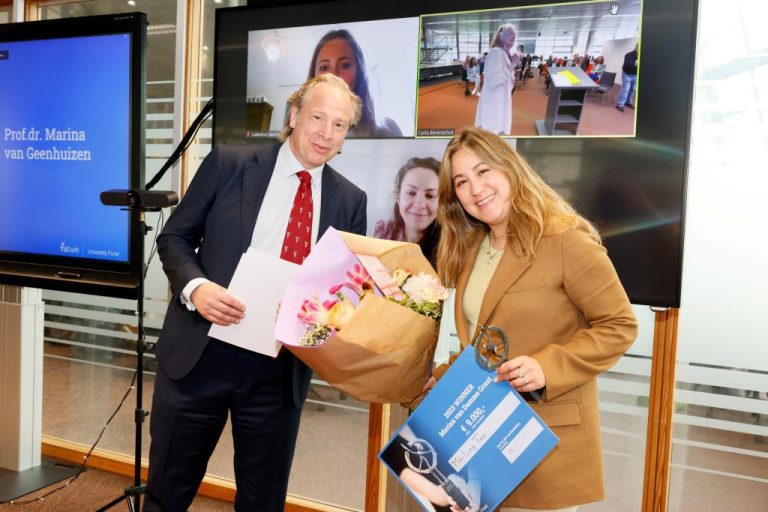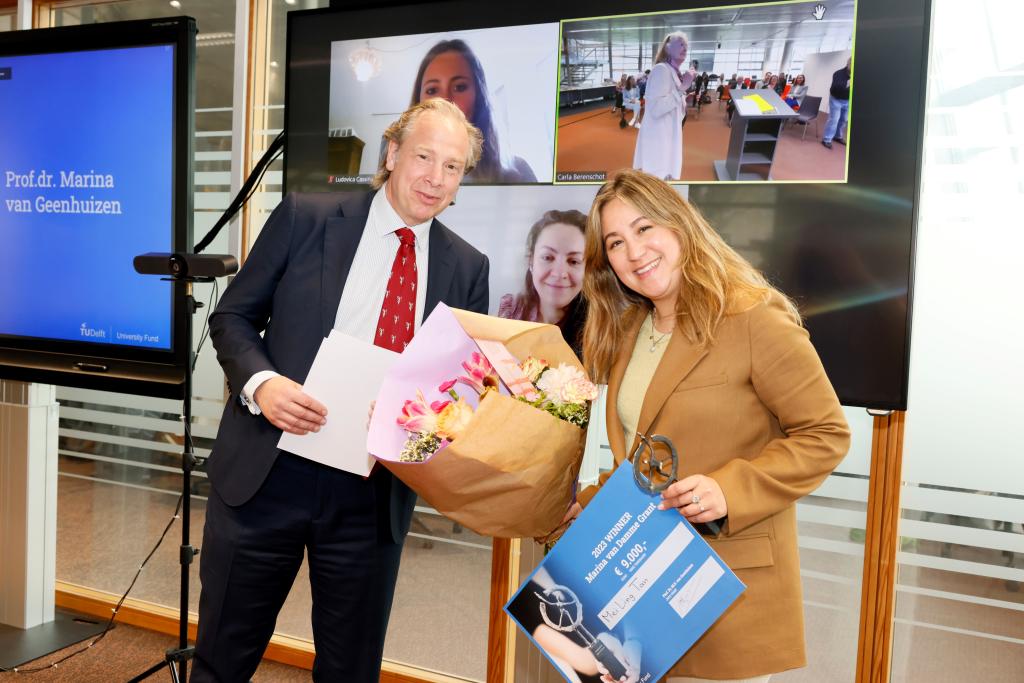
Winner Mei Ling Tan and University Fund director Jasper Peterich. On the screen behind them Oleksandra Ivashchenko and Ludovica Cassina. (Photo: Roy Borghouts)
The Marina van Damme Grant was awarded to Delft alumni Mei Ling Tan and Oleksandra Ivashchenko on Thursday. For the first time, the prize was awarded twice; both winners receive a grant of nine thousand euros. Ludovica Cassina, the third contender, won a double runner-up prize of five thousand euros.
The jury praised Ivashchenko for her decision to opt for a more practical MBA study after her medical-physical scientific career. With the €9,000 grant, Ivashchenko plans to continue her education at the Amsterdam Business School to “broaden her horizons and gain a better understanding of the business side of healthcare”.
Tan was praised, among other things, for “her plan and dedication to change the current fractured financial system and improve access to capital for female entrepreneurial engineers”. She will use the money for the Oxford Private Equity Programme.
If possible, runner-up Cassina would also have gone home with the top prize, the organization stated. Instead, the architect, who graduated from the Delft Faculty of Architecture and now specializes in circular construction economics, received double the usual consolation prize. The three women were nominated from a total of eighteen applications.
The grant, which is awarded annually at all three Dutch technology universities, was created in 2003 by Marina van Damme. She graduated as a chemical engineer at TU Delft in 1953 and was the first female engineer to obtain her doctorate twelve years later at what was then the Technische Hogeschool Twente.
The prize should enable young female engineers to “develop further” and to “boost their personal career”. The grant has not been awarded in the past two years due to the low quality of the entries. (KB)



Comments are closed.